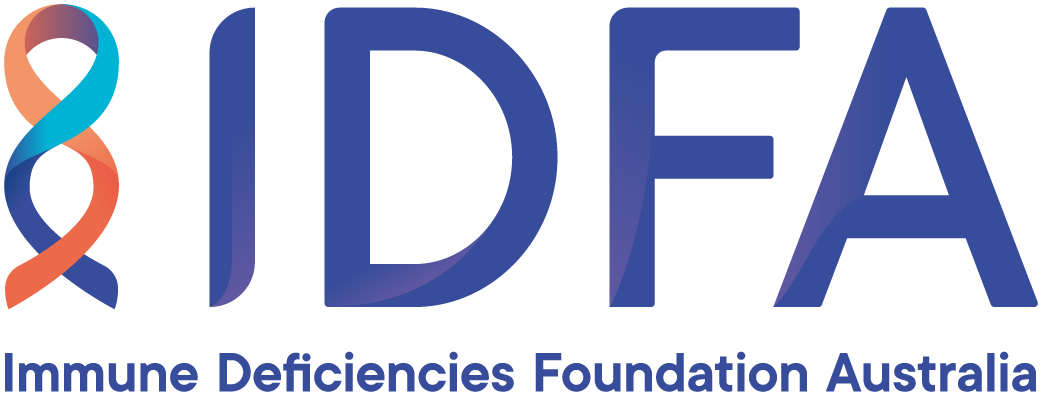Federal Budget and Australians Living with Immunodeficiencies
IDFA has been advocating to the government on behalf of our members for many years now. We are pleased with some of the initiatives in the recent federal budget around both healthcare and cost of living that may benefit our members:
IDFA have been advocating to government on behalf of our members for many years now. We are pleased with some of the initiatives in the federal budget around both healthcare and cost of living that may benefit our members:
Healthcare
- $25 million to support the continued delivery of newborn bloodspot screening (NBS) expansion and consistency of conditions. Early diagnosis is critical in rare disease for better outcomes as it enables the best immediate treatment and care. This announcement is welcomed by IDFA.
- $2.6 million in 2024–2025 to support patient care improvement and general practitioner services, health professional education, condition awareness and digital resources is welcomed, and this will benefit those with a rare disease.
- Pharmaceutical Benefits Scheme scripts will be frozen at $31.60 for a year, while concession-card holders and pensioners will have the price frozen at $7.70 for five years, and another 42 medicines will be listed on the scheme. As IDFA members know access to medicine is important in the treatment of conditions and infections. The PBS reform will ensure that members can access medicines quickly which will assist in accelerating their recovery, with potentially fewer visits to the GP, hospital and benefits for the whole community.
- $361.0 million over four years to expand the range of free mental health services, so that Australians get the right level of care for their level of need.
- Launching a new national early intervention service to ensure people can access support before their distress escalates to needing higher intensity services like a mental health treatment plan, acute in-patient service or crisis line.
- Providing free mental health services through a network of 61 walk-in Medicare Mental Health Centres, building on the established Head to Health network. They will have their clinical capability upgraded to ensure every centre has psychiatrists, psychologists and GPs on call.
- Funding Primary Health Networks, in partnership with general practices, to bring on mental health nurses and other allied health supports to provide free care coordination and support to patients with complex needs, in between GP and specialist appointments.
Cost of Living
- A $300 energy bill rebate will go to every household over the 2024-25 financial year, while 1 million small businesses will get a $325 subsidy. If you pay your bill quarterly, you should see a $75 rebate on each bill.
- Worth even more to many people are the government’s changes to the stage 3 tax cuts – from July 1, the nation’s 13.6 million taxpayers will enjoy tax cuts worth, on average, $1888 a year or $36 a week.
- Commonwealth rent assistance will also be increased by 10 per cent.
- $588 million has been designated to create a free digital mental health support service to help 150,000 Australians with “less intense” issues, in the hope that it stops them deteriorating further (to be launched 2026).
There were several missed opportunities including:
- Measures around improving health literacy, consumer empowerment and self-care.
- Funding for Centres of Expertise (CoE) through a competitive workforce grant to develop and accelerate models of expert rare disease care, which are critical to addressing gaps in rare disease care.
Overall, there are some specific measures that will benefit those with a rare disease such as an immunodeficiency. IDFA will continue to work with and advocate to government to improve healthcare and lifestyle for our members.
More information is available here Budget 2024-25: Communication pack (health.gov.au)
